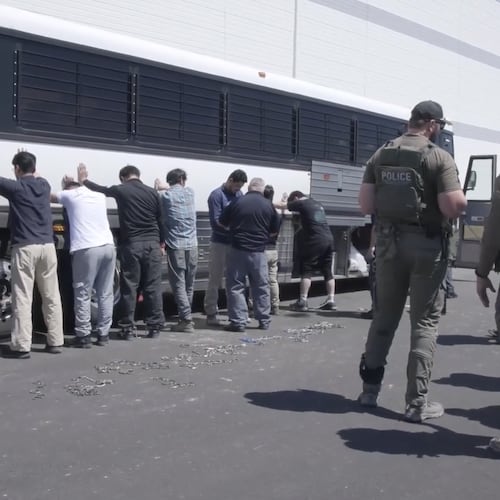Recently, I had the privilege of touring the Center for Diversion and Services in Atlanta. What I saw was incredible.
The center helps people find housing, get treatment for substance use disorder, and receive badly needed health care that is often inaccessible without help from a case manager.
As a former player for the Atlanta Falcons who still resides here, I take tremendous pride in this city. And I was beaming with it as I learned about how center staff help people solve some of their toughest problems, stay out of jail, and head on the path to recovery.
Unfortunately, the center is far from capacity, and its staff is underutilized. That state of affairs is not because people are rejecting the help, but because they aren’t being connected to the center at all. We need to change that.
The Center for Diversion and Services opened in 2025 to great fanfare. If police encounter someone they believe is committing a minor offense that is because of living in poverty or unmet mental health or substance abuse issues, they can now bring them to the prearrest diversion center for assistance instead of jail.
The facility’s on-site services include a sobering room, a food pantry and showers, peer support and case management. People also can access a case manager who connects them with housing, substance use treatment, or mental health services — all of which are not so easy to get without assistance. It is open 365 days a year.
Treatment and services help people return to productive lives
Credit: Bryan Scott/contributed
Credit: Bryan Scott/contributed
The problem with utilizing the center is not that people reject the services offered there. The problem is that the police aren’t bringing enough people there in the first place, and that is the only way people can utilize the center. The center can help 40 people a day but, on average, is seeing just three referrals daily.
That is a travesty, because the services offered by the center are extremely effective in building people up and improving community safety. I spoke to one program participant on my visit who described the life changes he was able to make because of the services he received from the staff, which included connection to housing services, help with identification and vocational help.
He spoke about his years being in and out of jail because of panhandling to get enough money to eat. After coming to the center, he is now housed and off the streets. And research confirms what common sense tells us — when you get people the help that they need, crime and disorder go down.
Traditional forms of policing — as important as they are — will never effectively reduce crime stemming from unmet needs. Policing does not address the root causes of crime because that’s not what it’s designed to do. In contrast, prearrest diversion helps people get the services that they need to treat underlying issues.
Case workers can help with housing or medical care, providing people with a lifeline and a path to get off the streets or return to work or live productive lives. If we want to have healthier communities, we need to use the Diversion Center.
Taking crime seriously means reducing disparities in the system
This underutilization is not because Atlanta and Fulton County are already meeting everyone’s needs. The Jail Population Review Committee looked at 187 people arrested between February and March of this year and found that 84% of those people had diversion-eligible cases and could have been helped.
This is another reason increasing use of the diversion center is so important — using it can help reduce some of the worst disparities in our legal system.
A 2023 Department of Justice study documented that 87% of people held at theFulton County Jail were Black, despite making up just half the population in Fulton County and Atlanta. That report also cataloged serious civil rights violations against people held in the jail who had psychiatric disabilities. Getting people out of jail who do not need to be there can reduce the strain on those working at the jail and improve the jail’s ability to provide psychiatric care. And it is a first step to addressing the racial disparities in pretrial incarceration, simply because fewer people will be held pretrial.
We must all work together to increase the use of the Diversion Center. It is good for police to use because getting people access to treatment means they will need to make fewer arrests in the future. It is good for our neighborhoods, where signs of disorder are too often present because people with unmet needs frequently have nowhere to go. And it is good for people who are struggling. The center provides a pathway for people to shift the course of their lives.
Right now, people are debating crime in the news daily. Perhaps, for just a minute, we can actually take crime seriously and get people the resources they need, instead of talking about it as political theater. We have a center with staff ready and able to improve the lives of people struggling the most, which will, in turn, improve all of our lives. Let’s start to use it.
Bryan Scott is a Players Coalition advocate and former NFL player who spent 10 seasons in the NFL, including with the Falcons.
About the Author
Keep Reading
The Latest
Featured


